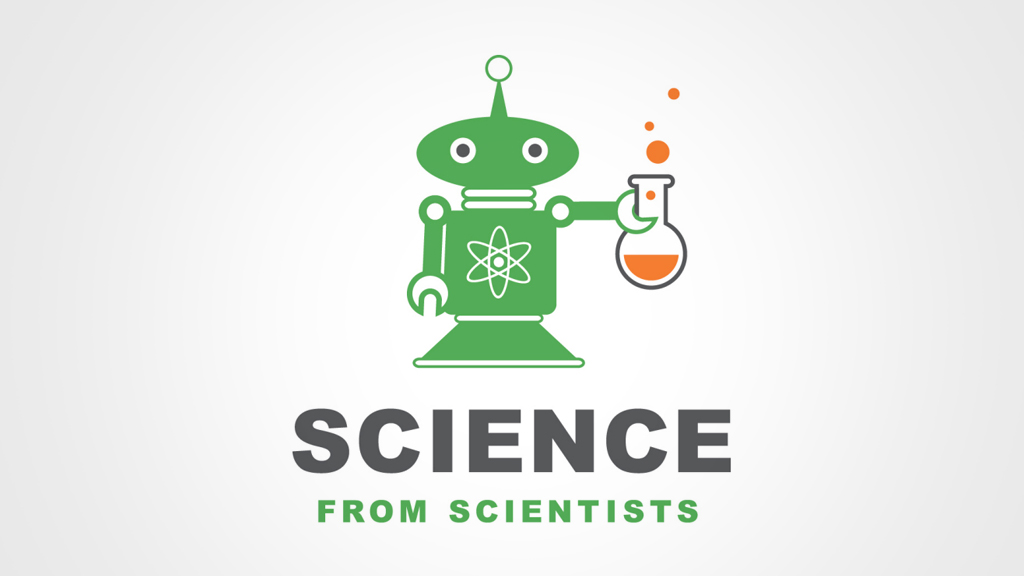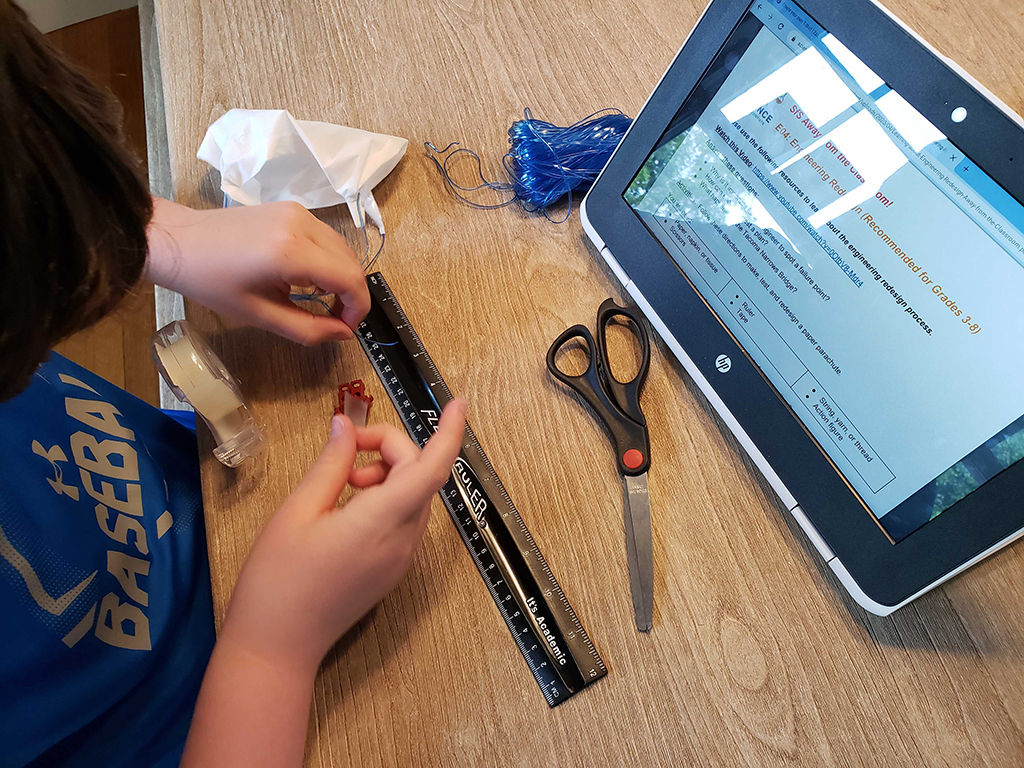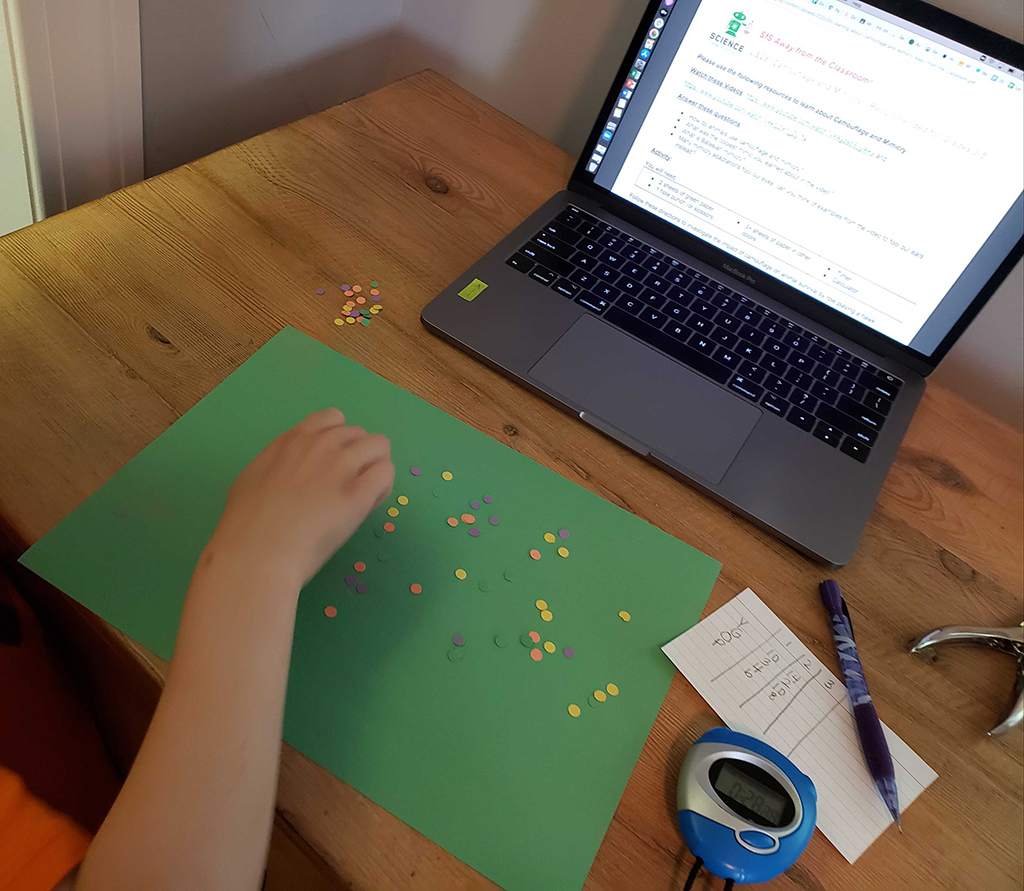Brief
The Science from Scientists Experience Goes Virtual
Connected Science Learning April–June 2020 (Volume 2, Issue 2)
By Cortney Wieber, Jayne Mirabassi, Esther Niemasik, and Ellen Attorri

Science from Scientists (SfS) is an organization that improves STEM (science, technology, engineering, and math) literacy to teach and inspire the next generation to identify and solve real-world problems. Our method for achieving this goal this has traditionally been to bring charismatic scientists into classrooms to teach student-centered STEM lessons. In light of the current COVID-19 crisis, SfS classroom instructors have developed a collection of Away From the Classroom (AFTC) experiences: 100 virtual, hands-on STEM lessons based on our usual in-school offerings. Each lesson contains the following:
- a link to a short instructional video that covers a specific science topic;
- questions for the student to answer regarding the science video;
- a hands-on activity which uses safe, non-essential household items; and
- claims for which the student can find evidence in the science activity.

The AFTC lessons are designed for students in third through eighth grade. On the website, you will find these lessons sorted by topic (Anatomy and Physiology, Chemistry, Engineering, Earth Science, Life Science, Physics, Technology, and Scientific Practices) and by grade level. A Spanish-language version of each lesson is currently being developed, and we anticipate the lessons will be translated into Portuguese, Hmong, Somali, and Cape Verdean Creole. To create the AFTC lessons, we e-mailed classroom teachers and asked how we could address their needs for virtual lessons. Teachers mentioned that students may not have materials for science activities so consequently, we wrote our AFTC activities to be sure that all of the needed materials were nonfood and noncleaning products. Feedback from teachers indicated that students need more visual supports, so we added activity videos to the AFTC lessons to clarify directions for visual learners.
In addition to working with partner teachers early on to identify needs and wants, we have received great feedback from teachers. Notably, one grade 5 team (at a school that had been participating in our during-school program before schools moved to distance learning) is consistently using AFTC lessons for remote learning. This school has even made modifications for their students who need language or learning support. “We are loving the AFTC activities! We edited the Celestial Mechanics [AFTC lesson] for this week and we also sent you an ELL [English language learner] version with sentence starters added in! Hope these are helpful to you guys!” The team also noted that it plans to use at least six more AFTC lessons this school year. These teachers are still in communication with the SfS instructor who had been visiting their classroom. In addition, AFTC activities are also being used directly by parents and students. Currently, we have had 6,443 unique visitors access the lessons over 13,464 times. These visitors span all 50 states and 25 different countries.

Aside from providing virtual modular experiences through the AFTC lessons, SfS is also offering virtual vacation programs for fourth through eighth graders through Ohlone College in California. This year, two topics are being offered: One is about exploring the Amazon, and the other is for students interested in a career in a medical field called pre-health. Students who choose Exploring the Amazon will discover the wonders of animals and ecology through the lens of the amazing Amazon rainforest; the students interested in pre-health will learn about our body's incredible systems and functions.
SfS’s pivot to virtual media is making STEM enrichment more accessible than ever before, SfS’s YouTube channel, SciScientists, developed a video series, “Between 2 Beakers” which features three distinct video topics about the wonders of STEM. One topic, “Experiment Mondays,” guides viewers through a fun, hands-on experiment that they can do at home with readily available materials. The set includes at-home experiments on Mondays, an informal conversation between two scientists on Wednesdays, and an interview between a student and scientist on Fridays. Each features different scientists from the organization and beyond, profiling various STEM fields. Our hope is that this series will spark curiosity, model STEM practices, help develop understanding of concepts, and showcase opportunities for students and their families to continue exploring the world around them.
Cortney Wieber (Cortney@sciencefromscientists.org) is director of education at Science From Scientists in Boston, Massachusetts. Jayne Mirabassi (Jayne@sciencefromscientists.org) is an instructor at Science from Scientists in Boston, Massachusetts. Esther Niemasik (Esther@sciencefromscientists.org) is an instructor at Science from Scientists in San Francisco, California. Ellen Attorri (Ellen@sciencefromscientists.org) is the communications manager at Science from Scientists in Boston, Massachusetts.


